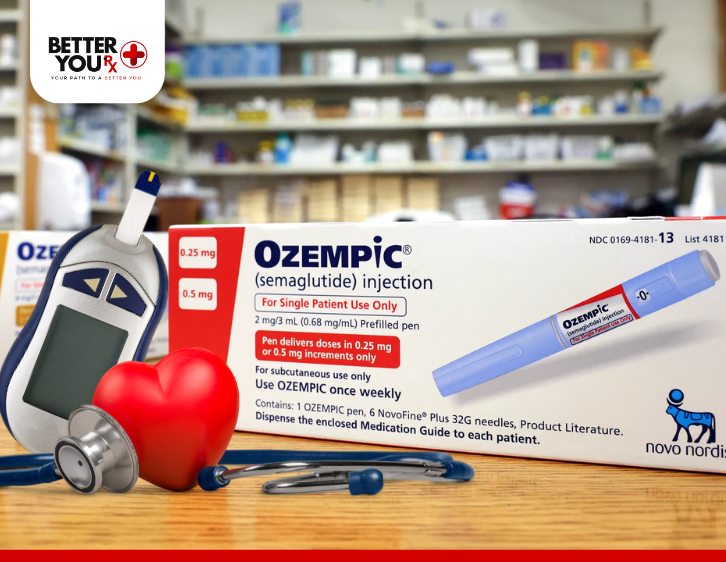Can Diabetics Enjoy Grapefruit? Discover the Benefits and Sugar Content of This Fruit
Grapefruit is a citrus fruit known for its refreshing taste and numerous health benefits. However, for individuals with diabetes, it’s essential to evaluate how grapefruit impacts blood sugar levels. In this article, we will explore whether grapefruit is safe for diabetics to eat, its potential health benefits, its sugar content, and how it can fit into a diabetic diet.
Understanding Grapefruit’s Nutritional Profile

Before diving into how grapefruit affects diabetes, it’s important to know what makes this fruit so healthy. Grapefruit is low in calories, high in fiber, and loaded with essential vitamins and minerals, making it an attractive option for those looking to manage their overall health and diabetes.
Nutritional Breakdown:
- Calories: A medium-sized grapefruit contains about 52 calories.
- Carbohydrates: One medium grapefruit provides around 13 grams of carbohydrates.
- Fiber: It offers 2 grams of fiber, which helps with digestion and stabilizes blood sugar levels.
- Vitamin C: Grapefruit is an excellent source of vitamin C, which plays a key role in immune function and skin health.
The combination of low calories and high nutritional value makes grapefruit a beneficial addition to a diabetes-friendly diet, provided it’s consumed in moderation.
Is Grapefruit Good for Diabetic?
For individuals with diabetes, managing blood sugar levels is crucial, and understanding the impact of foods on these levels is essential. Grapefruit, known for its tangy flavor and low glycemic index, is often considered a safe option for diabetics.
Glycemic Index of Grapefruit:
The glycemic index (GI) measures how quickly a food raises blood sugar levels. Foods with a low GI cause slower, more gradual increases in blood sugar, while high-GI foods can lead to rapid spikes. Grapefruit has a low GI of approximately 25, which means it causes a slower increase in blood glucose levels and is generally safe for diabetics to consume.
Carbohydrates and Blood Sugar:
A typical medium-sized grapefruit contains about 13 grams of carbohydrates, which is a moderate amount. However, the fiber in grapefruit helps slow the absorption of sugars into the bloodstream, reducing the chances of a blood sugar spike. The fruit’s low glycemic index and fiber content make it an excellent choice for individuals looking to manage their blood sugar levels.
Health Benefits of Grapefruit for Diabetics

Grapefruit is not only a safe choice for blood sugar management, but it also offers several health benefits that can support overall wellness for those with diabetes.
- Supports Weight Management:
Maintaining a healthy weight is essential for diabetes management. Grapefruit’s fiber content helps promote feelings of fullness, reducing overeating. With only 52 calories in a medium-sized grapefruit, it can be a satisfying and low-calorie snack. - Rich in Antioxidants:
Grapefruit contains antioxidants like flavonoids that help combat oxidative stress, which is often elevated in individuals with diabetes. These antioxidants have anti-inflammatory properties, supporting overall health and potentially reducing the risk of complications associated with diabetes. - May Improve Insulin Sensitivity:
Some studies suggest that grapefruit may help improve insulin sensitivity, a key issue for individuals with type 2 diabetes. Although more research is needed, including grapefruit in your diet could help manage blood sugar levels over time. - Boosts Immune Health:
With its high vitamin C content, grapefruit helps strengthen the immune system, which is especially important for people with diabetes, as they may be more susceptible to infections due to weakened immune response.
Possible Risks and Considerations
While grapefruit is generally safe for diabetics, there are a few important factors to keep in mind before including it regularly in your diet.
- Interaction with Medications:
Grapefruit can interact with certain medications, including those used to lower cholesterol (like statins) and some blood pressure drugs. The fruit can interfere with enzymes that break down these medications in the body, potentially leading to harmful side effects. If you’re on any of these medications, consult with your healthcare provider before adding grapefruit to your diet. - Monitor Your Blood Sugar:
Although grapefruit has a low glycemic index and is considered safe for most diabetics, it’s important to monitor your blood sugar levels regularly, as everyone’s body responds differently to food. Tracking your blood glucose after eating grapefruit can help you understand how your body reacts.
How to Incorporate Grapefruit into Your Diabetic Diet

If you want to enjoy grapefruit while managing your diabetes, there are several delicious and creative ways to incorporate it into your diet:
- As a Snack: Enjoy a fresh grapefruit on its own as a refreshing, low-calorie snack.
- In Salads: Add grapefruit segments to a green salad for a burst of citrus flavor.
- In Smoothies: Blend grapefruit with other fruits and vegetables for a nutritious and hydrating smoothie.
- Fresh Juice: Drink freshly squeezed grapefruit juice, but remember to monitor portions to avoid excess sugar intake.
Final Thoughts
Grapefruit can be a healthy, diabetic-friendly fruit, thanks to its low glycemic index, high fiber content, and abundance of vitamins and antioxidants. When eaten in moderation, it may help with weight management, improve insulin sensitivity, and support immune health. However, it’s crucial to monitor blood sugar levels and consult your healthcare provider if you are on medications that may interact with grapefruit.





